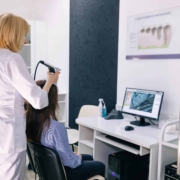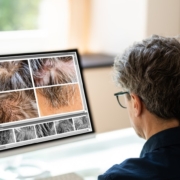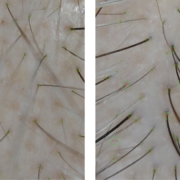Unveiling the Science of Effective Hair Restoration
What Is Peptide Therapy And Lyme Disease
At HPIHair in Nashville, we offer personalized, physician-supported solutions rooted in science to help you address the underlying causes of hair loss. Our team of trichologists and hair loss specialists work with you to develop a clinically-based, individualized treatment plan tailored to your unique needs, whether you’re in the early stages of hair loss or seeking full restoration. With over 30 years of success in helping people regrow their hair, it’s no wonder that physicians trust us with their patients’ care. One promising option we offer is peptide therapy, a rapidly developing field that uses specific peptidesshort chains of amino acidsto potentially influence biological processes like tissue repair, immune function, and overall wellness. Though peptide therapy shows promise in supporting hair regrowth, individual results can vary, so it’s essential to consult with healthcare professionals to determine how this treatment may align with your personal health goals. Experience the power of hair science for yourselfget started on your journey today.
Peptide Therapy: What You Need to Know
Peptides, often referred to as the building blocks of proteins, are short chains of amino acids that play critical roles in various physiological functions within the human body. In recent years, peptide therapy has emerged as a groundbreaking approach to addressing a wide range of health concerns, including hair loss. Here are some key points to help you understand the potential benefits of peptide therapy for hair restoration:
– Peptide therapy involves the use of specific peptides to target and influence biological processes related to hair growth and maintenance.
– These bioactive peptides can stimulate the production of growth factors, collagen, and elastin, supporting the regeneration of healthy hair follicles.
– By harnessing the potential of peptide therapy, individuals experiencing hair loss have the opportunity to address underlying factors contributing to their condition and promote natural hair regrowth.
Exploring the Connection Between Peptide Therapy and Hair Regrowth
As researchers continue to delve into the intricate mechanisms of hair growth and loss, peptide therapy has emerged as a promising avenue for those seeking effective solutions. Here’s a closer look at how peptide therapy may impact hair regrowth:
– Peptides can target and modulate signaling pathways involved in hair follicle development, potentially promoting the formation of new hair and preventing further hair loss.
– Certain peptides have shown the ability to enhance blood circulation to the scalp, ensuring that essential nutrients and oxygen reach the hair follicles, creating a conducive environment for healthy hair growth.
– Additionally, peptide therapy may contribute to the reduction of inflammation in the scalp, which is often linked to conditions that lead to hair loss, such as alopecia.
Peptide Therapy for Women: A Personalized Approach to Hair Restoration
For women experiencing hair loss, whether due to genetic predisposition, hormonal imbalances, or other factors, peptide therapy offers a personalized and scientifically based approach to rejuvenating hair health. Here are some important considerations for women seeking to explore the potential of peptide therapy for hair restoration:
– Peptide therapy is tailored to address the specific needs and unique challenges of women dealing with hair loss, taking into account individual health factors and genetic influences.
– By promoting natural hair regrowth and improving the overall health of the scalp, peptide therapy can provide women with a non-invasive and natural alternative to traditional hair restoration methods.
– The personalized nature of peptide therapy allows for a comprehensive approach that addresses not only the visible symptoms of hair loss but also the underlying factors contributing to the condition.
Navigating the Role of Peptide Therapy in Lyme Disease and Hair Health
In addition to its potential impact on hair regrowth, peptide therapy has garnered attention for its role in addressing the effects of Lyme disease, a condition that can have profound implications for hair health. Here’s how this innovative approach may provide benefits for individuals managing the impact of Lyme disease on their hair:
– Peptide therapy may support the body’s natural defense mechanisms, aiding in the restoration of overall wellness and resilience, which can positively influence hair health for individuals affected by Lyme disease.
– By targeting inflammation and promoting tissue repair, specific peptides utilized in therapy may help mitigate the impact that Lyme disease can have on hair follicles, contributing to improved hair condition and regrowth.
Consulting with Our Experts: Taking the Next Steps Toward Hair Restoration
If you’re intrigued by the potential benefits of peptide therapy for hair restoration and are considering exploring this innovative approach, our team at HPIHair is here to guide you every step of the way. By consulting with our experienced trichologists and hair loss specialists, you can gain valuable insights into how peptide therapy may align with your unique hair restoration goals. Schedule an appointment with us today and discover the transformative power of personalized, physician-supported solutions rooted in the science of hair regrowth.














